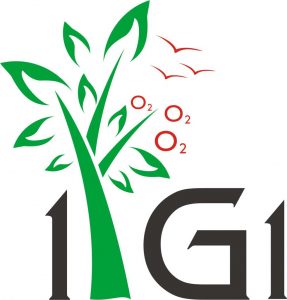Trees are the lifeline of our planet, playing a crucial role in maintaining a healthy and balanced ecosystem.
However, human & urban development activities such as deforestation, uprooting trees for more space have led to severe damage to our green ecosystems.
The consequences of cutting down trees are far-reaching, impacting not only the environment but also our social and economic well-being. It is now more important than ever to focus on repairing the damage caused and restoring our ecosystems to their former glory.
Request a 1-to-1 discussion

The effects of deforestation are evident in various aspects of our lives. One significant impact is the loss of biodiversity. Trees provide habitat and food for countless species, supporting intricate ecosystems.
When trees are cut down, these species lose their homes, resulting in a decline in biodiversity. According to recent studies, 92% of new tree plantations were established in biodiversity hotspots, further threatening plant and animal species. It is crucial to prioritize the preservation of these hotspots when planning tree-planting initiatives.
Another detrimental effect of cutting trees is the disruption of the water cycle. Trees play a crucial role in regulating rainfall patterns and maintaining the health of water bodies.
When trees are removed, the soil becomes vulnerable to erosion, leading to water pollution and reduced water availability. By planting trees, we can restore the natural water cycle, ensuring a sustainable supply of clean water for both humans and wildlife.


Climate change is one of the most pressing issues of our time, and removal of trees significantly contributes to its acceleration. Trees act as natural carbon sinks, absorbing carbon dioxide from the atmosphere and storing it in their biomass.
When trees are cut down, this stored carbon is released back into the atmosphere, exacerbating the greenhouse effect. By planting trees, we can mitigate climate change by sequestering carbon and reducing the concentration of greenhouse gases in the atmosphere.
Furthermore, trees play a vital role in mitigating the urban heat island effect. Urban areas tend to have higher temperatures compared to surrounding rural areas due to the abundance of concrete and asphalt, which absorb and radiate heat.
By planting trees in cities, we can provide shade, reduce surface temperatures, and improve air quality. This not only enhances the well-being of urban residents but also contributes to achieving Good health and well-being as outlined by the United Nations Sustainable Development Goals To repair the damaged ecosystem, it is crucial to adopt sustainable tree planting practices. It is essential to plant a diverse range of native species that are well-suited to the local climate and ecosystem.


We work with policymakers, urban planners, businesses, environmentalists and communities to repair the damaged ecosystem as a collective effort. By recognizing the significance of trees in sustainable development, we create greener and more resilient cities that benefit both humans and the environment.
